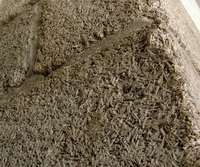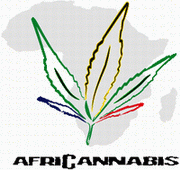The union representing the majority of South Africa's police called on Thursday for a review of the laws against dagga and sex work.
In resolutions approved on the final day of its national congress in Cape Town, the Police and Prisons Civil Rights Union (Popcru) declared that both areas should be "regulated".
One delegate even urged that if sex work was legalised it should be turned into a public-private partnership rather than be left to the vagaries of free enterprise.
The resolutions, both proposed by Popcru's Gauteng region, follow a suggestion earlier this year by National Police Commissioner Jackie Selebi that prostitution be legalised for the 2010 soccer world cup.
The resolution on dagga noted that use of the drug was regulated in other parts of the world, such as Holland's Amsterdam.
It called for research on "the prospective aspects of dagga regulations" and on the drug's medical effects, and committed the union to work towards steps "to counter the stigma".
The union will also "pursue discussions with authorities on dagga regulations".
One delegate, Durban police officer Christopher Mkhize, told the congress that dagga had been around in South Africa long before white settlers arrived and decided it was wrong.
"We can't stay with that in a democratic country," he said. "It is our democracy and we are the ones who should say what is wrong and what is right."
He said he himself would not have achieved his current qualifications if it were not for the money raised by his family's cultivation of dagga in rural KwaZulu-Natal.
"Most of our kids have been taught through money generated by dagga," he said.The resolution on sex work - described in the original motion as "prostitution" but changed after objection from a female delegate - called for "street transactions" to be made illegal, which they already are, and for a working environment which complied with labour legislation.
Giving his interpretation of the dagga resolution, union president Zizamele Cebekhulu told Sapa afterwards that the union was calling for research "that confirms the danger of dagga to a human being".
He said the drug contributed a certain percentage to South Africa's gross domestic product whether one liked it or not.
"Some parents are still smoking dagga in their house. It's outlawed, but they smoke it. So we say, regulate this thing, tax this thing, and... let dealers not go away with the money."
He insisted that regulation of the drug would mean a harsher regime than the current ban on dagga.
"It's useless to say it's illegal, and yet you have got no control measures over it.
"We say, regulate it, meaning that you put more stricter measures in terms of dealing and in terms of consuming dagga." -
Sapa





